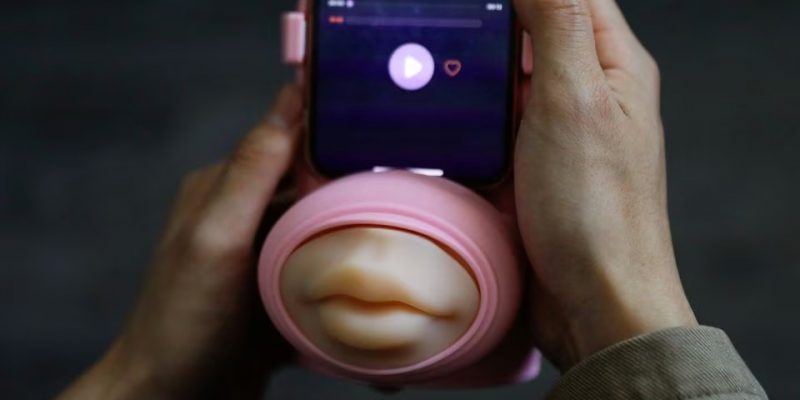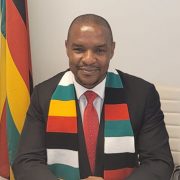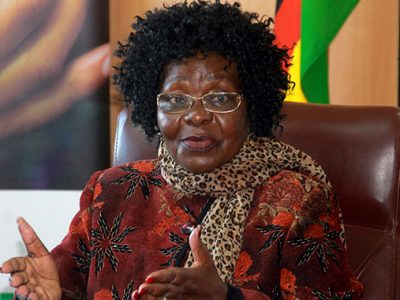REUTERS-A Chinese start-up inspired by lockdown isolation has invented a long-distance kissing machine that transmits users’ kiss data collected through motion sensors hidden in silicon lips, which simultaneously move when replaying kisses received.
The MUA – named after the sound people commonly make when blowing a kiss – also captures and replays sound and warms up slightly during kissing, making the experience more authentic, said Beijing-based Siweifushe.
Users can even download kissing data submitted via an accompanying app by other users.
The idea was borne out of China’s frequent, lengthy and widespread lockdown measures during the three-year COVID-19 pandemic that, at their most severe, saw authorities forbid residents to leave their apartments for months on end.
“I was in a relationship back then, but I couldn’t meet my girlfriend due to lockdowns,” said inventor Zhao Jianbo.
Zhao Jianbo was a student at the Beijing Film Academy, and focused his graduate project on the lack of physical intimacy in video calls. He later set up Siweifushe which released MUA, its first product, on Jan. 22 priced around 260 yuan (US$38).
In the two weeks after its release, the firm sold over 3,000 kissing machines and received about 20,000 orders, he said.
The MUA resembles a mobile stand with realistic pursed lips protruding from the front. To use it, lovers must download an app onto their smartphones and pair their kissing machines, which they plug into the phone charging port. They activate the device using the app, then when they kiss it, it kisses back.
The device is available in several colours though with the same unisex lips. It has received mixed reviews, with some users saying it was intriguing whereas others said it made them feel uncomfortable. Among the top complaints was its lack of tongue.
MUA is not the first remote kissing device. Researchers at Tokyo’s University of Electro-Communications invented a “kiss transmission machine” in 2011, and Malaysia’s Imagineering Institute made a similar gadget called the “Kissinger” in 2016.







Comments